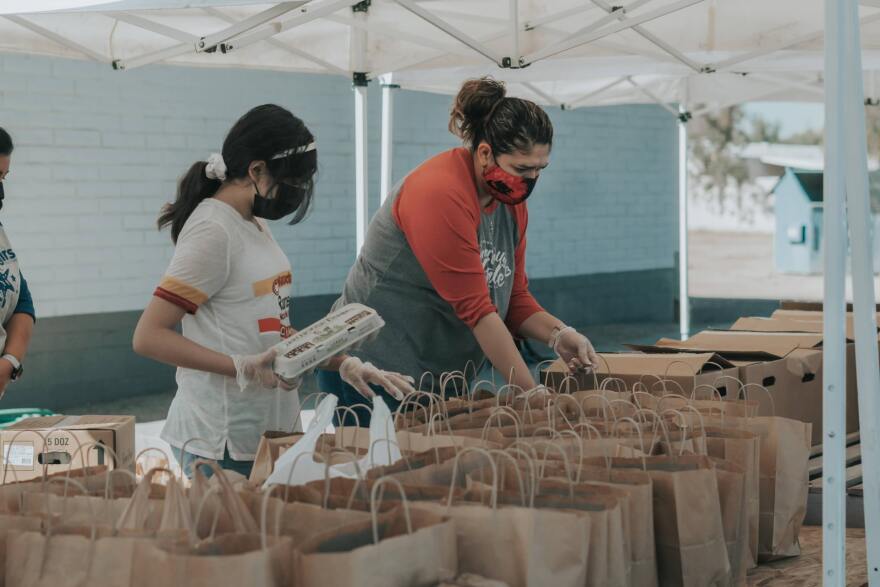Michigan food banks saw a dramatic increase in families needing help in March.
Stacy Averill is Vice President of Community Giving with Gleaners Community Food Bank in southeast Michigan.
Averill said there were about 13,000 visits to Gleaners mobile food pantries last month. That compares to an average of 9,000 for each of the six previous months.
She said high inflation means more people can't afford gas or food.
"They're coming to the distribution carpooling," Avrill said. "They're riding together to save money on gas. They're picking up food for themselves and their neighbors, knowing that their neighbors are in need as well and trying to save them the trip."
Averill said some families visiting mobile food pantries mentioned their rent had increased, so there was less room in their budget for food.
"There's a toxic stress that comes with food insecurity and having to make tradeoff decisions, like having to choose between paying a bill or putting food on the table. And that's why we're here. We can take hunger off the table."
Feeding America West Michigan also saw a big jump in visits to its mobile food pantries. The group is the food bank for 40 counties in Michigan, including the U.P.
Juliana Ludema is the communications and marketing specialist for the group. She said in February, there were about 11,000 visits to food pantries across the region.
In March, that grew to about 15,000 visits — a 34% increase.
Ludema said nearly a third of people who use Feeding America West Michigan's mobile food pantries make too much to qualify for the federal Supplemental Nutrition Assistance Program — commonly known as food stamps.
That does not mean they can afford to put enough food on the table, she said.
One of the group's mobile food pantries was recently visited by a married couple, both working full-time, with three teenage boys, she said. The family didn't qualify for federal assistance, but had run low on money to feed the kids.
Averill and Ludema said cash donations to food banks go much further than non-perishable items that people donate during food drives.
"We have a stronger buying power," Ludema said, "so even though prices are rising, we're still able to purchase and acquire food for much cheaper than other people could, so donated funds definitely goes a lot further for us. We can get food from manufacturers, retailers, wholesalers, and farmers."
Copyright 2022 Michigan Radio. To see more, visit Michigan Radio.



